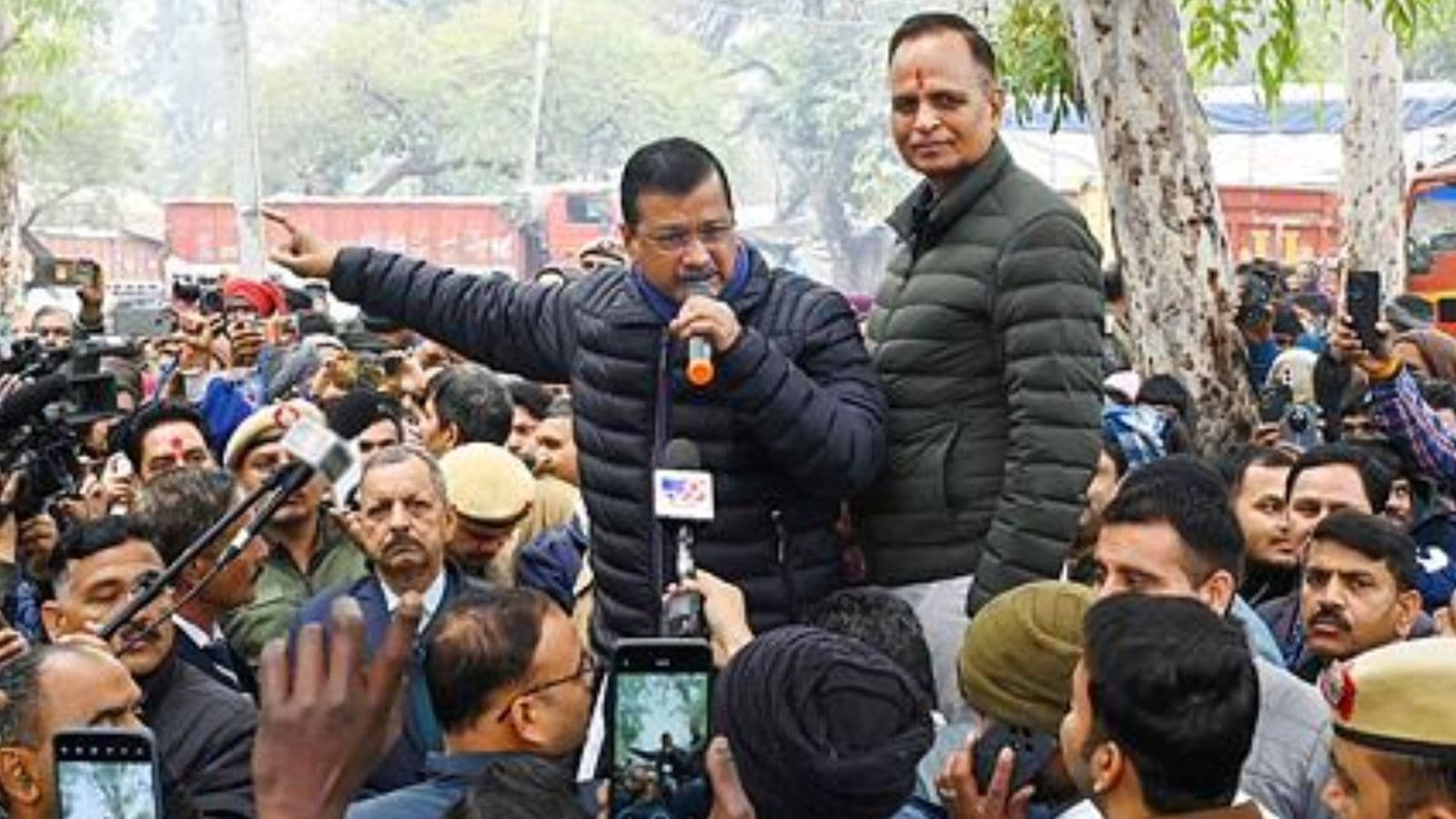 |
|
The political landscape of Delhi is heating up as the upcoming elections draw closer. Arvind Kejriwal, chief of the Aam Aadmi Party (AAP), has issued a bold challenge to Union Home Minister Amit Shah, directly linking his participation in the upcoming Delhi elections to the BJP's handling of slum demolitions. Kejriwal's challenge centers on a simple yet powerful proposition: if the central government, under Shah's leadership, commits to halting all ongoing slum demolition cases and provides a legally binding guarantee in court to rehabilitate all displaced residents on their original land, he will withdraw his candidacy. This dramatic escalation of the political rhetoric highlights the deeply contentious issue of urban development and the rights of vulnerable communities in Delhi.
Kejriwal frames his challenge not just as a political maneuver but as a moral imperative. He positions himself as the unwavering protector of the slum dwellers, contrasting his actions with what he describes as the BJP's cynical approach. He accuses the BJP of engaging in performative acts of solidarity, accusing them of only showing interest in slum communities during election cycles. The images of BJP leaders spending a night in slums are portrayed by Kejriwal as mere political theatre designed to garner votes, devoid of genuine concern for the well-being of residents. This is a strong attack against the credibility and sincerity of the BJP's promises and their claimed commitment to the welfare of the underprivileged.
Central to Kejriwal's argument is the accusation that the BJP prioritizes land acquisition and lucrative real estate deals over the needs of the people residing in these slum communities. He points to the change in land use designation for the Shakur Basti slum area as evidence of the BJP's intention to clear the land for other purposes after the elections. This exemplifies, according to Kejriwal, the true motivations behind the BJP's supposed concern for slum dwellers. He further strengthens his argument by citing the Railways' tender to demolish the railway camp slum, highlighting a pre-existing plan to displace residents regardless of any promises made during the election campaign. This alleged pre-emptive measure to demolish the slums undermines the BJP's claims of sincerity and showcases a disregard for the welfare of the affected populace.
The challenge extends beyond the specific instances of demolition. Kejriwal directly attacks Shah's character, alleging that Shah had verbally attacked him during a recent event. This personal attack emphasizes the high stakes involved in the conflict and the deeply personal nature of the political battle. He also criticizes the BJP's 'Jahan Jhuggi Wahan Makan' (where there's a slum, there's a house) scheme, arguing that it's a facade, claiming that the BJP's true intentions are to replace slums not with housing for slum dwellers, but with projects benefiting their wealthy friends and associates. The claim that only 4,000 houses have been built under this scheme while 400,000 slums exist in Delhi serves as potent evidence supporting his accusation of insincerity and hypocrisy.
Kejriwal's final argument is an appeal to the voters. He uses strong language, framing a vote for the BJP as essentially signing one's own 'suicide note,' suggesting the BJP has a plan to demolish all slums in Delhi within a year of taking power. He asserts that he has been the only chief minister who actively worked to prevent these demolitions, citing his actions to halt demolition processes. He also attempts to portray himself as a champion of the poor and a selfless leader, contrasting his actions with what he portrays as the BJP's selfish and opportunistic motives. This emotional appeal aims to rally support and encourage voters to reject the BJP and support his party in the upcoming elections. The strong statement 'Aap nahi toh mai nahi' (You aren't with me, then I am not there) emphasizes his solidarity with the slum dwellers and his commitment to fighting for their rights. The article serves as a clear call to action for his supporters and a stark warning to the voters about the potential consequences of electing the BJP.
